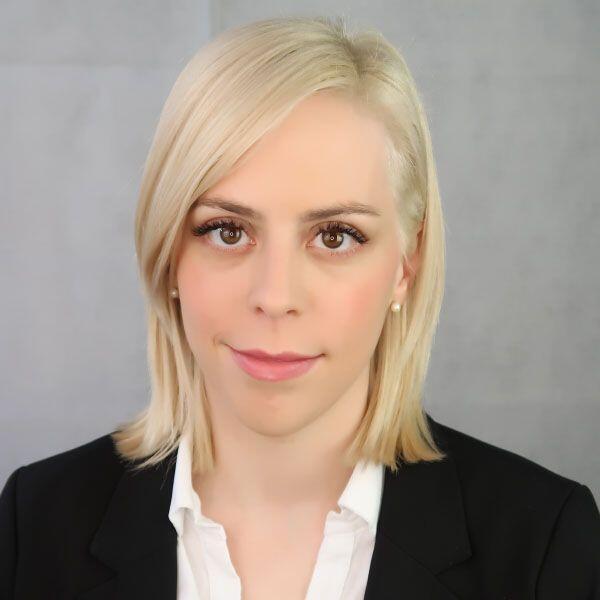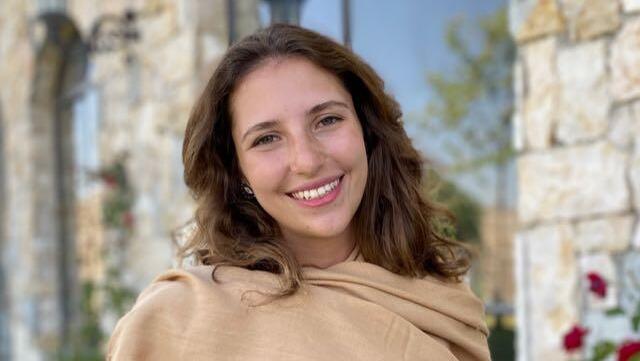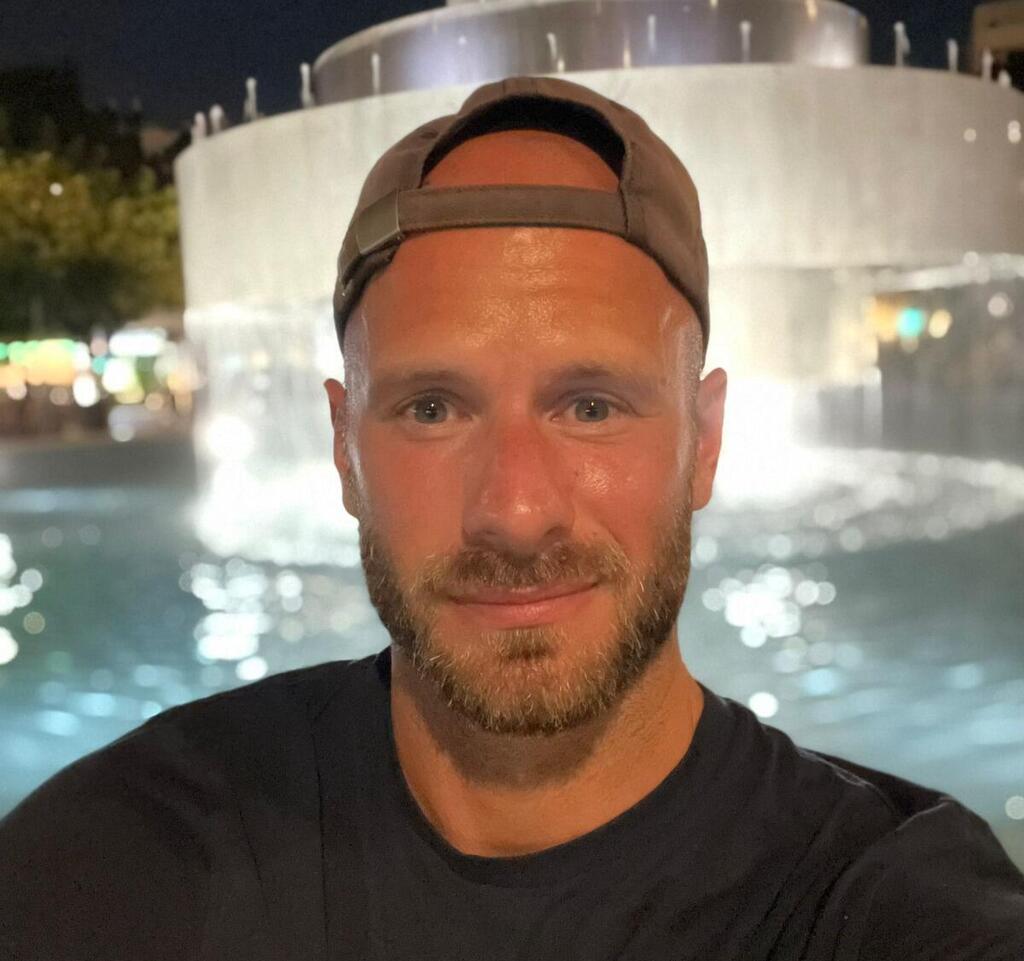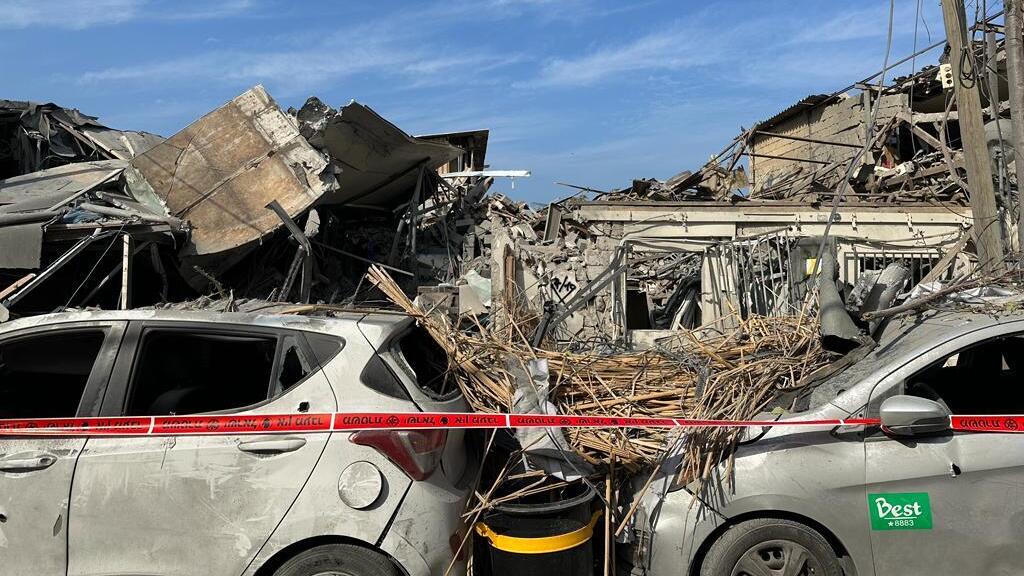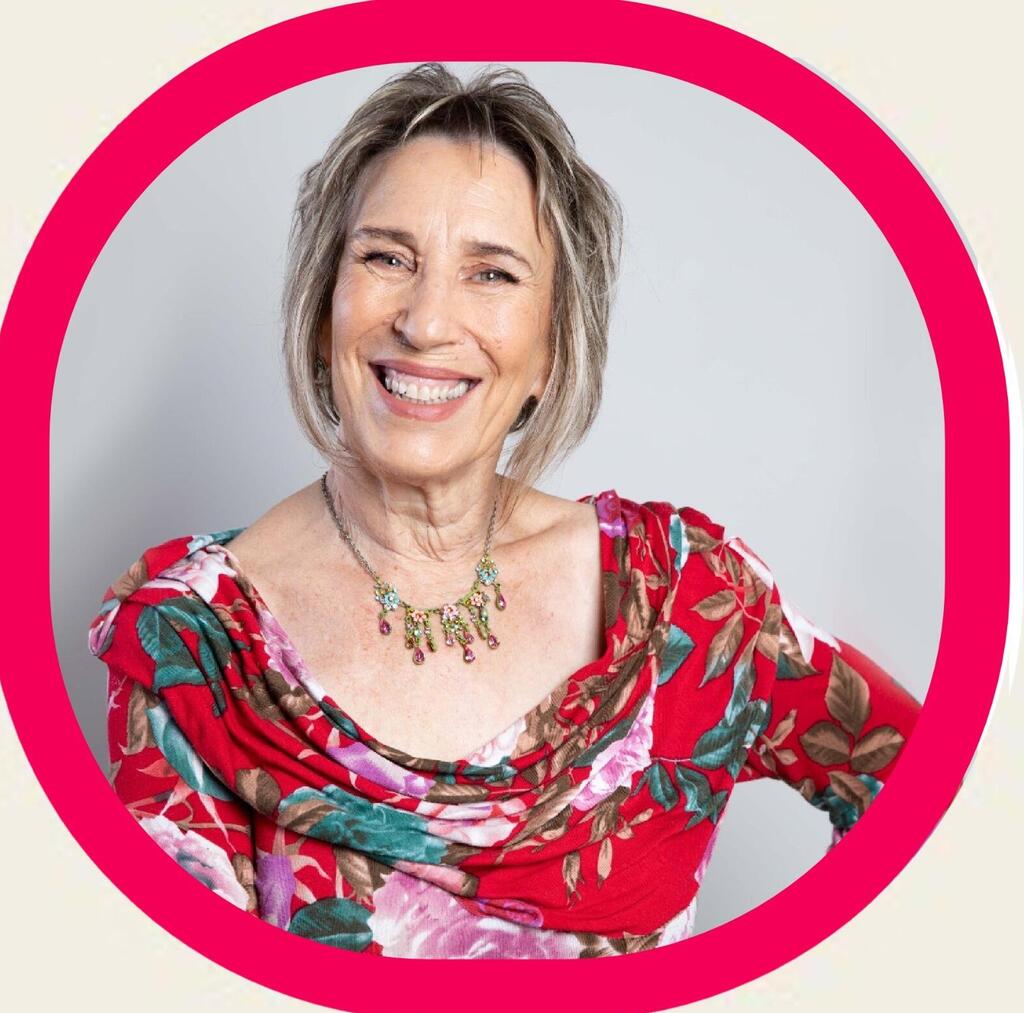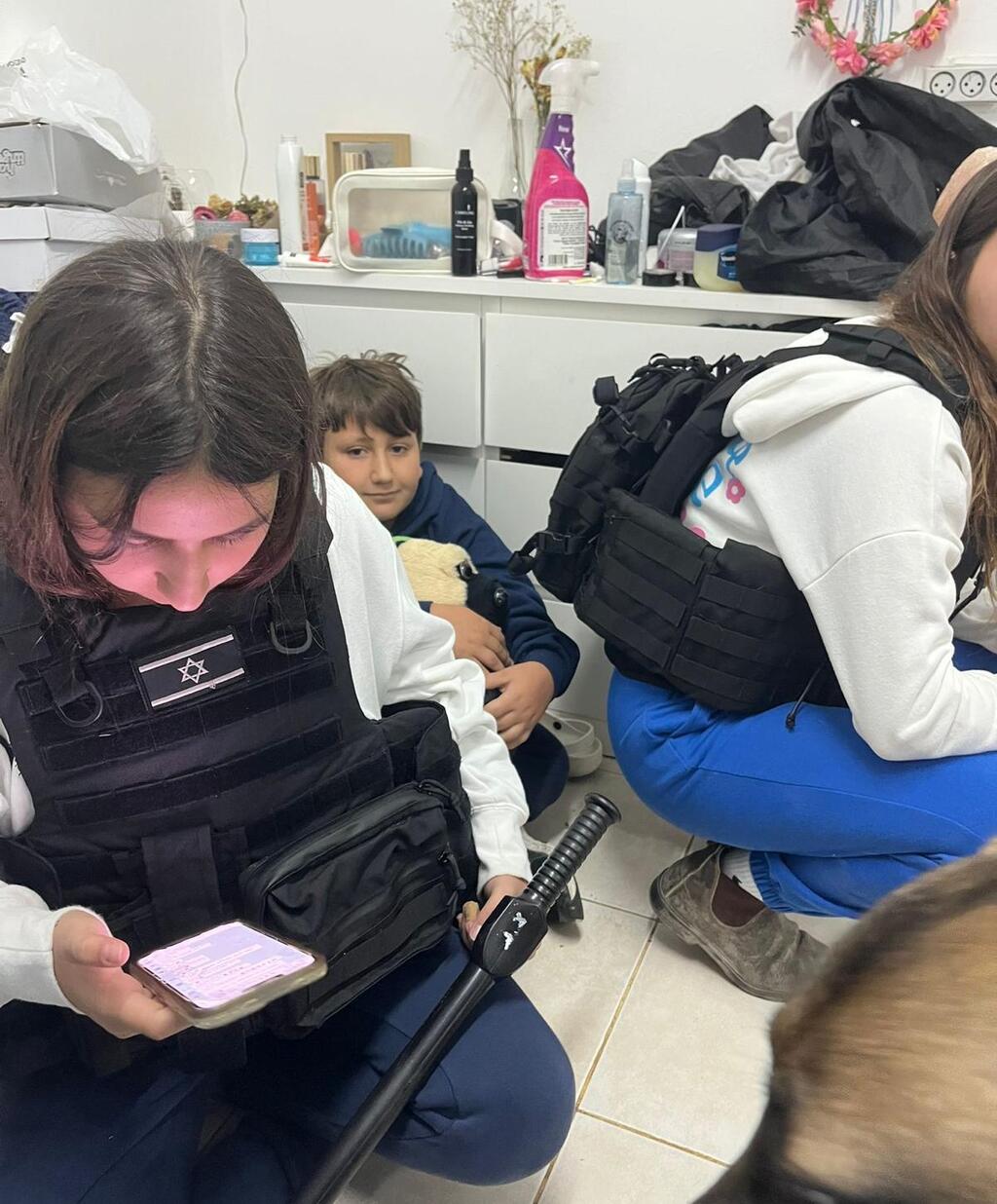As Israelis around the country experience the trauma of war once again, for many new immigrants to Israel, known in Hebrew as Olim Chadashim, the experience is new, and frightening. Ynetnews spoke with Olim from across Israel, including one from a Gaza border community, who shared their experiences under Hamas rocket fire after the horrific attacks by the Palestinian terror group in the October 7 massacre.
More stories:
Fernanda Siufi, 24, made Aliyah from Brazil one year ago and lives in Ramat Gan. “The first siren and first few hours were insanely scary. My roommate woke me once she heard the siren and we had to run four floors down to the shelter," she told Ynetnews. "It was the first time I experienced that, and it was so sudden that I went with no shoes and no pants to the bunker with all my neighbors. From that moment on, I didn't sleep anymore, I made sure to wear shoes all the time to be always ready to run safely.”
On Israel’s response, Siufi, like many other Olim, admits that she was terrified. “I'm super scared. I do love and trust Israel very much, but still this feeling of not knowing what is happening, seeing our friends being called up – this is all very, very scary," she said.
Siufi added that, in terms of what she’d like to see from the international community, she hopes that Israel receives “more support from the world right now, and that we can especially get all of the people [hostage] back safely.”
Jordan Falkenstein, a 37-year-old immigrant from Canada who made Aliyah in 2022, is concerned about the victims and families of victims of the Hamas attacks.
“Like most Israelis, I am in a state of shock over what happened in the south and across the country. I saw an ISIS-style attack resulting in a growing number of deaths, hostages and emotional trauma. I made six trips to a shelter on Oct 7 and knew to stay calm and vigilant. I am not scared personally but worried about the emotional well-being of victims and families who are watching horrific footage on social media.”
6 View gallery
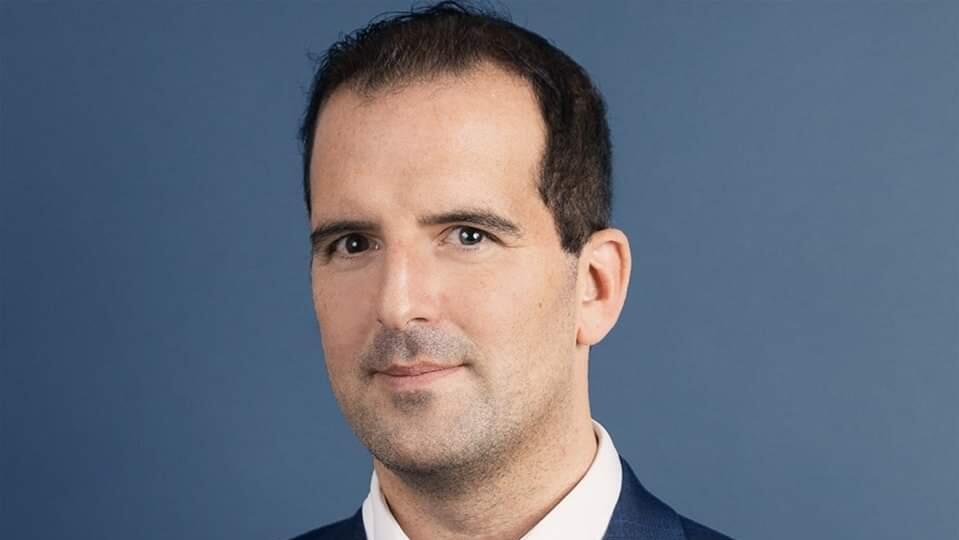

Jordan Falkenstein says he has full faith in the government and the IDF
(Photo: Carly Hourigan/ Hour Media Group)
As for what he believes Israel should be doing in response, he told Ynetnews he has “full faith” that the government “and the young men and women of the IDF will bring justice to the hundreds of innocent Israeli casualties.”
As for the global response, Falkenstein says, “The international community needs to recognize that the threats funded by Iran are real. The threat of Hamas and Hezbollah are real, and nations need to stand with us. I have received dozens of messages from friends, family and elected officials back home who have expressed their solidarity with Israel. Israel should not be expected to apologize for its responses to these horrific attacks.”
Zachary Malis, 33, from Philadelphia, who immigrated only last year and lives in Tel Aviv, said his “feelings about what's happening currently can be described mostly as anger along with sadness and fear. Anger mostly because it's an attack against a place I love and its people. A country that I moved to out of a love for the people.”
Asked if he was afraid of the war and escalation, he replied, “Of course I'm scared, as any normal person would be. No one wants to end up dying in a meaningless way. And being in a shelter while hearing from the news what's going on, and not being able to help, added to that fear and anger and sadness. However, I know that the Israeli security forces are at work. Also, being surrounded by other Israelis, Olim and sabras, who are there for you in the most trying of times, makes it easier to be less scared.”
Malis notes that Israel is frequently portrayed poorly in the international media. "What I wish, and had wished even prior to this event, that people outside of Israel should know is Israel isn't the aggressor. Israel has always strived for peace. Yet that is never typically portrayed by most media. Whether it's disingenuous articles/titles, or edited videos, Israel is portrayed poorly. I hope people realize after this event the negotiating partner Israel has been dealt with (Hamas, Palestinian Authority, etc), and how their form of negotiating has ben been violence. Indiscriminate violence," he said.
Adele Raemer, 69, from Kibbutz Nirim, is an Olah who has faced rocket fire for many years while living on the Gaza border. Her community was among those which were invaded by Hamas terrorists and she was evacuated along with all the civilians in the kibbutz.
“At 6:30 in the morning on Saturday, we started getting alerts of rocket attacks. Every person who lives where I do has a safe room. We have between 0-10 seconds to get to the safe room from the second we hear the alarm sound until we hear the explosion… It was a very heavy barrage and widespread and far more widespread than we're used to having,” she said.
From there, the situation only escalated. “Within half an hour, we were given notification that there were terrorists inside our community, that we were to close windows, close our blinds, lock the doors and to lock ourselves inside our safe rooms, which cannot really be because the safe room does not lock. The only way it can be truly locked is if you are standing there holding onto the handle, pulling it down and hoping that the terrorists on the other side aren't strong enough to open it," she explained.
"At one point, we heard shooting outside very often," Raemer continued. "We heard voices outside shouting at each other in Arabic. So it was clear that there were terrorists right near our house. We had no idea at the time how many terrorists there were, but in retrospect, apparently, about 50 terrorists entered our community, infiltrated our community. We had to be very quiet. It was hot. We didn't dare turn on the air conditioner because we didn't want that to be making noise, and you couldn't go out to go to the bathroom."
"About an hour later, I couldn't anymore. I had to go to the bathroom. There was no way unless it was doing it on the floor. I endangered our lives, which was probably not the right thing to do, but I opened the door very carefully to make sure that there was nobody in the house. I saw that our slats had been broken on the window. So terrorists had been trying to enter our house. For some reason, dumb luck or divine intervention or my dear late husband looking over us from above, I don't know what, something changed their mind and they left us," she recalled.
Eventually, the army arrived, and they killed the terrorists that they could find. Once it was safe enough, they extricated people, families, one at a time from their houses and walked us to a central safe place. What we discovered afterwards was that there were families that were abducted. We have five people from Nirim that were abducted. We do not know of their fates—and there were three people on their own who were murdered.”
Raemer explained that, even upon their escape, they witnessed horrific trauma from the attack firsthand. “We drove through a war zone that was still an active war zone. There were cars on fire, there were charred bodies at the side of the road, army all around.”
As for the response, Raemer told Ynetnews she has faith in the IDF. “I trust our country to learn from our mistakes, from what happened… if the residents of our communities do not feel safe, they're not going to go back to live there. You can give up on that region of Israel. And if you give up on that region of Israel, you can give up on all of Israel. We have no choice. The army will learn from it, the government will learn from it, and we're going to fix this.”
Asked about the international community’s response and the lack of understanding Israel has faced in the battle against terrorist organizations like Hamas and Islamic Jihad, Raemer said, “What I wish that people from outside of Israel would understand is that we are not the bad guys here. We have all along offered peace and wanted to build relationships with our neighbors.
"We know how to make peace, but it has to be with people that are willing to make peace. I'm not saying that all of the Palestinians are bad and all of the Palestinians don't want to make peace. I have friends who are Palestinians who live in Gaza and I know that they want to make peace and I'm so worried about them. I'm so concerned for their lives.
"But their leaders, Hamas, do not want to make peace. They're terrorists. They're the Nazis of 2023. These people are ISIS. All they want to do is to slaughter and rape and pillage and destroy. When they say, 'Palestine will be free from the river to the sea,' that means no Jews, that means no Israel…”
She concluded, “On Saturday, we experienced the start of what they intended to be a genocide, and we are going to do anything we need to do to not let that happen. While I'm concerned about the innocents in Gaza, I will never, ever apologize for my country, my army, doing what they need to do to keep me safe.”



